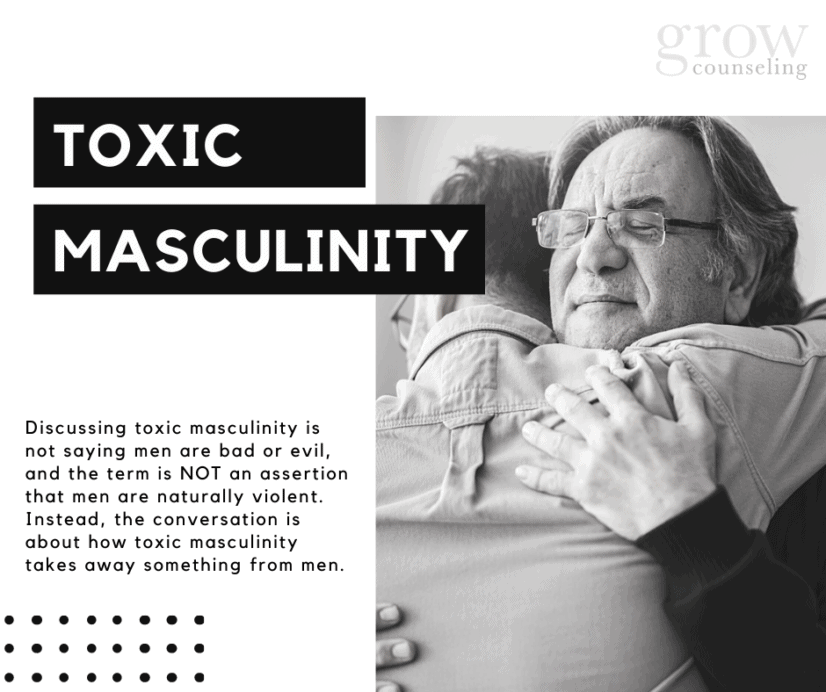In Part 1 on Emotions and Toxic Masculinity, we explored how detrimental toxic masculinity can be to a man. In part 2 of this blog, we will discuss how early childhood messages of emotion affect men and how to know when it’s time to ask for help.
Boys and men learn “appropriate” gender roles in accordance to the masculine expectations of their given society. For instance, in American society, young males receive messages of what it means to be a boy in the way that their toys are marketed differently from girls. The words “battle, power, and hero’s” are more commonly associated with the marketing of boy’s toys while girls see words such as “love, magic, and friendship.”
Language has a way of impacting us.
It can provoke powerful emotions or stimulate intellectual thoughts. It can influence our perspectives, ideas, and culture, and when certain words are used in marketing for children it can affect all of this and more. Another way boys learn gender roles is when they are told at a young age to not cry, or to man-up, which when told repeatedly eventually reinforces the emotion of anger as the only acceptable emotion to feel. These are just two possible ways for toxic masculinity to develop.
Discussing toxic masculinity is not saying men are bad or evil, and the term is NOT an assertion that men are naturally violent. Instead, the conversation is about how toxic masculinity takes away something from men. While it is important to understand ways that toxic masculinity can develop, it is also important to know when to ask for help.
If you notice that you struggle with accepting other emotions outside of anger or quickly reject your other natural emotions, it might be time to seek help. It can affect your relationships, career, and limit you from understanding your full self.
We have several therapists at GROW who would be happy to help you explore and process areas in your life where you are noticing the effects of toxic masculinity!
Written by: Jasmine Tyson

